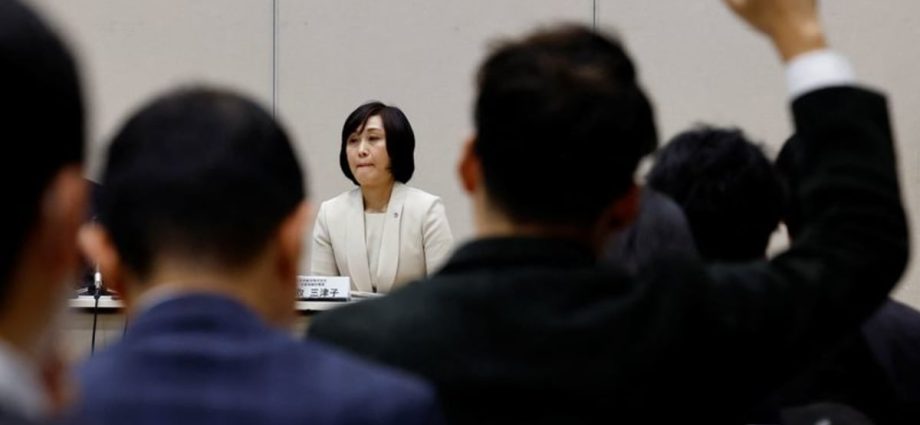
Tashiro is one of the most senior women in Japanese finance, where, like many industries, the top echelons remain overwhelmingly male.
Women account for only 13.4 per cent of directors and executive officers at the 1,836 firms listed on the TSE’s “prime” market, and of these a mere 13 per cent are internal hires.
“Many companies say they don’t want to promote unqualified females too quickly,” says Yuko Yasuda, a director at governance consulting firm Board Advisors Japan. “It may be an excuse.”
There are signs of change. Yasuda says more than half of inquiries for board posts are for women and clients are increasingly looking for direct management experience.
IMPOSTER SYNDROME
Finding women with experience, however, is challenging. Up to now, many Japanese women haven’t even entertained the prospect of becoming managers.
“Imposter syndrome is especially strong in Japan,” said a spokesperson for HR services provider Recruit Holdings.
The owner of platforms such as job listing website Indeed and company review website Glassdoor, Recruit has made changing this mindset central to its initiatives supporting women’s careers.
“We encourage people to further their careers by having various experiences early on,” the spokesperson said.
To extend opportunities for management training to a wider pool of candidates, Recruit’s domestic subsidiary has created a checklist of core competencies necessary to perform each first-line management position.
It says this helps undo unconscious biases that in the past would privilege “macho” qualities, such as the capacity to work at all hours, and has raised the number of female candidates for each position by a factor of 1.7 and that of men by 1.4.
But initiatives such as these take years to filter through to the top, leaving ambitious Japanese women with few role models to inspire and guide them.
Tottori told a JAL press conference earlier this month that she hoped her appointment would encourage women who are struggling with their careers or big life events.
Notwithstanding Tottori, the current crop of female leaders often come from privileged backgrounds or have made immense sacrifices to succeed at work, said Etsuko Tsugihara, founder and CEO of public relations firm Sunny Side Up Group and one of only around 14 women heading a “prime” listed Japanese firm.
“When I went to the hospital to give birth, I came straight from the office. Then I was back at work two weeks later,” Tsugihara recalled. “It put off other women from doing the same.”
Now the employee welfare programme at Tsugihara’s firm encourages work-life balance for both female and male staff and supports long-term life planning by subsidising blood screenings, fertility-related hormonal tests and even egg freezing.
“To be a role model you have to have a healthier, richer life,” Tsugihara said.

